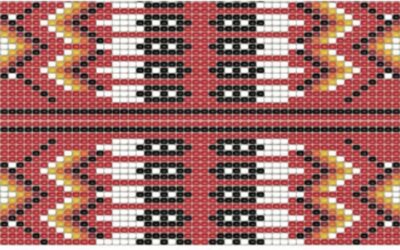
How you can show up for others
Indian Country Headlines
What Matters in This Moment
Issues Impacting Indian Country
Contact Us
Learn More, Know More, Do More.
So far in 2025, there have been more than 80 executive orders signed by the new administration, bringing rapid changes that will affect all Americans..
For members of Native communities, the effects of these changes can be even more complex.
Finding a way to respond to these changes is made difficult by the nature of Executive Orders, as there is no accountability to ordinary citizens, nor our elected representatives. We might not be able to stop what’s happening, but we can control how we handle it.
The College Fund has created this resource to help you connect the dots between new policy shifts and their effects on Native students, Tribal Colleges and Universities – and how Native communities will be impacted as policy changes continue to evolve and roll out. Because when everyone knows more, we can do more to protect opportunities for everyone.
On this page, you will never be asked for money. This space is designed for learning and action – no fundraising appeals in updates, just the facts you need.
Staying informed is the first step. Taking action is the next. Scroll down to explore the latest updates, learn from Native voices, and discover ways you can help.
What Matters in This Moment
I want to start by thanking those who have reached out in support of Native peoples. All of us at the American Indian College Fund and the students and the communities we serve are deeply touched by the outpouring of support.
Learn More ›
Issues Impacting Indian Country
Policy changes are happening fast – don’t get left behind. Check back regularly for the latest updates, and make sure you’re signed up for urgent alerts.
Learn More ›
Whats Happening and What Can We Do
Contact Us
Are you currently being impacted by executive orders or other current policy changes? We want to hear about it! Please don’t hesitate to reach out.
Sign Up for Urgent Alerts and Stay On Top of the News
Learn More ›
What Matters in This Moment:
A Note from Cheryl Crazy Bull, President and CEO, American Indian College Fund

January 30th, 2025
I want to start by thanking those who have reached out in support of Native peoples. All of us at the American Indian College Fund and the students and the communities we serve are deeply touched by the outpouring of support.
Today the importance of diverse thoughts, cultures, knowledge, and perspectives are being challenged. This concerns me for our students and the potential for lost opportunities. Even more, it saddens me for what this says about our nation and what will be lost, perhaps irretrievably. When people operate from a place of fear but also wield tremendous power, it can result in irreparable harm with impact beyond anyone’s understanding.
Every American understands the impact of a lack of access to education for our children individually and in community. When people are geographically remote, diverse, or without financial means, like most of the people we serve, the impact is even more devastating.
To date, we have lost funding for two significant scholarship programs that support nearly 100 students each year with meaningful scholarships. One hundred talented, smart, innovative, forward-thinking, young Native people are now faced with limited opportunities to complete their studies because people are afraid to stand up for democratic values.
It is hard for me to imagine where I would be in my own life and career if I had not embraced my identity and the importance of sharing my voice. It has not always been easy, but it has always served me well. As an elder in my tribal community and among Native people, I must use my voice because being an elder means exercising the leadership that is needed when our people are at risk of great harm. And in my workplace, where all of my team are younger than me and because I have children, grandchildren, and great-grandchildren- I listen respectfully and with care to hear the voices of our young people who willingly and passionately share the future they want for themselves and for everyone on the planet.
In the past week I have listened to tribal leaders, non-profit leaders, politicians, colleagues, and people in our communities to learn more about the environment we are in before speaking.
When I reflect on my 13 years leading the College Fund, I see clearly how the contributions of people of all ages, cultures, beliefs, and backgrounds have helped us grow as an innovative organization. We create opportunities for students to access higher education, graduate, and go on to serve their communities in the workforce. We support tribally controlled colleges and universities to meet their students’ and communities’ needs in places where their institution may be the only one offering an affordable higher education.
No country and no community can afford to throw away the talents of its children. Every one of us has a gift to give, no one person’s gift is greater than another’s, and we cannot afford to squander anyone’s talents. We believe we are all relatives. We are colleagues, classmates, family members, and community members. In short, we are all connected. That is the very definition of community.
Today we are as committed to our mission and values as ever. We will continue to close the opportunity gap with financial and other resources to ensure our students’ access to and success in higher education. We continue our commitment to supporting the tribal colleges and universities which provide an affordable higher education and skilled graduates trained to meet the workforce needs of their communities in health care, education, science and technology, trades, business, and transportation.
Whether you are a supporter, a student, or an educator, I appreciate being able to hear from you about a time when you embraced a different perspective and how it helped you grow and learn. Please share your thoughts with me at prezcrazybull@collegefund.org.
Issues Impacting Indian Country and the Nation
Policy changes are happening fast – don’t get left behind. Check back regularly for the latest updates.
Our Work Is Not Finished
Last week, Congress passed the Trump Administration’s budget bill via the reconciliation process – ushering in sweeping budget changes that will affect nearly every federal program serving Indian Country.
While we are deeply concerned by the outcome, we are also proud. Proud of every single one of you who stood up, spoke out, and fought for Native students, communities, and sovereignty.
As our President and CEO Cheryl Crazy Bull shares in the letter below, this is not the end of the story. Our future depends on the education of our students and the strength of our Tribal Colleges and Universities.
Together, we must continue the work. Continue advocating. Continue building. Continue believing in Native futures – and continue fighting to make them reality.
My Friends and Relatives,
As we learned last week, the nation’s legislators passed the Trump Administration’s reconciliation bill that included significant budget changes for many programs including many that serve Indian Country.
In spite of the outcome, we want to thank you for your calls and emails to your elected officials on behalf of Native students and Native higher education. You showed up for what is right: the future of OUR communities.
As you know from our advocacy, we opposed the reconciliation bill because of those budget changes and how they impacted education, health care, and safety. At the College Fund and throughout Indian Country, we are deeply worried about the cuts in funding and the changes in programs.
The future for all of OUR communities is intertwined with EVERY ONE of OUR communities. Our nation’s future depends on the future of every one of us. It is more critical than ever we work together to educate the doctors, teachers, scientists and leaders of tomorrow.
The federal budget will have a profound impact on education, not just for Native communities, but for everyone. And although much was lost, we want to take time and remember our work together culminated in a few wins, too. Pell Grants remain intact ensuring the nation’s low- to middle-income students can study and enter the careers of their choice.
Our work is not finished. Native people believe we cannot afford to throw away a single person’s gifts. Every individual has something to contribute, and every talent must be fostered for all of us to flourish. To that end, we invite you to continue to walk beside us as we work to ensure Native students can further their education to give back to their communities—and that the remarkable tribal colleges and universities who serve Native and rural communities keep their doors open to graduate the skilled and talented workers we need.
We will be sharing our initiatives on our web site and social media regularly and we look forward to working alongside you as we work together to build a better future for our children, grandchildren, and generations to come.
With Deep Gratitude,

Cheryl Crazy Bull
President & CEO, American Indian College Fund
Urgent! Oppose Cuts to Pell Grant Program!
The American Indian College Fund joins the National College Access Network in urging higher education allies to oppose massive cuts to the Pell Grant program and its support of our most vulnerable students. The “Big Beautiful Bill”...
Stop the SAVE Act
The SAVE Act would upend protections for Native citizens. Here’s what you need to know.
Access to education is a right, not a privilege.
What’s Happening: An executive order and a reintroduced bill, H.R. 899, aim to dismantle the U.S. Department of Education (DoE) entirely. While the executive order resulted in massive employment cuts of nearly 50%, and funding redirects,...
Thank you, Haskell!
We Have Great News! Haskell Indian Nations University has announced it will rehire the faculty members who were recently laid off due to federal budget cuts. This is a huge victory for Native students – providing the security they need to...
We need your voice, right now.
Eliminating the Department of Education would devastate public schools, hurt students with disabilities, strip away civil rights protections for millions of students, and eliminate crucial workforce development programs that boost our economy. Education is a fundamental right, not a privilege for the wealthy. Please, call your elected officials in Congress today and let them know why dismantling the Department of Education threatens the future for thousands of Native and non-native students.
What’s at Stake? The Consequences of Budget Cuts to Native Higher Education
When federal support for TCUs is cut or withheld, the consequences are immediate and severe: Fewer scholarships: Many Native students rely on financial aid to attend college. Reduced funding means fewer opportunities to complete degrees....
Why Native Education is Different: The Relationship Between Tribal Colleges and the Federal Government
A treaty represents your rights, not your privilege: For most Americans, education is seen as a personal choice, an opportunity that students pursue through state and private institutions. But for Native nations, education is something...
How Does the Department of Education Support Native Higher Education?
The U.S. Department of Education provides funding through Tribal College grants, Title I, Title III, and Title VI programs – however, all of these funding streams are vulnerable to executive orders and budget cuts.
Indians and Citizenship – How Does It Work?
Immigration laws don’t always account for the unique legal status of Native peoples, especially those from tribal nations that cross international borders. Combine that with an increase in profiling and false immigration reports and...
The Impact of Immigration and Citizenship on Native Students; “Carry Your Tribal ID Card’
Immigration laws don't always account for the unique legal status of Native peoples, especially those from tribal nations that cross international borders. Combine that with an increase in profiling and false immigration reports and...
What Is an Executive Order? and How Do the EOs Enacted Impact Indian Country
Executive Orders are powerful tools that allow presidents to enact policy changes without congressional approval. For Native communities, this means funding for education, healthcare, and infrastructure can shift and even disappear overnight. Unlike laws enacted by Congress, citizens and our elected represents lack the ability to override these orders except through extreme coordinated action, undermining a check on the power of the executive branch.
What Is Lost If We Lose TCU’s
Recent actions by the new White House administration show that funding for community-based organizations, higher education institutions, and rural programs are at risk of severe funding cuts or even elimination. Any pause of a federal...
Why TCU’s Matter to the People Who Need Them
Connecting the Dots: Proposed changes to the educational system will affect everyone, but it can be difficult to see how it will impact Native students specifically. While many communities will lose schools, Native communities will lose...
Whats Happening and what can we do About It?
The ripple effects of policy changes don’t stop at classrooms, legislation, or funding decisions. When Native students and institutions lose resources, entire communities feel the impact—because education is about more than degrees. It shapes economies, cultures, and futures.
Sign Up for Indian Country Headlines
Sign up today to see Indian Country Headlines – Updated frequently to best inform you in your efforts to stay aware. All Indian Country Headlines strive for the most accurate information available.
Stay Informed.
Check back regularly for updates on how these policies are evolving. By staying informed, you are taking a vital step in ensuring that information remains free and available, and that sudden policy shifts won’t sneak by unnoticed.
Contact Your Local Representative
If Indian Country is something you care for, get involved first-hand and call your government representative today. Their office will give the most recent updates on official executive orders and take notice of your advocacy.
Get Involved
Every day is a new opportunity to respond to the topics that you care about the most. Spread word of these efforts and do your part to make a difference – all it takes is one click or phone call away!
Sign Up for Indian Country Headlines
Contact Form
Sign Up for Urgent Alerts and Stay On Top of the News Are you currently being impacted by executive orders or other current policy changes? We want to hear about it! Please don’t hesitate to reach out.
Are you currently being impacted by executive orders or other current policy changes? We want to hear about it! Please don’t hesitate to reach out.








